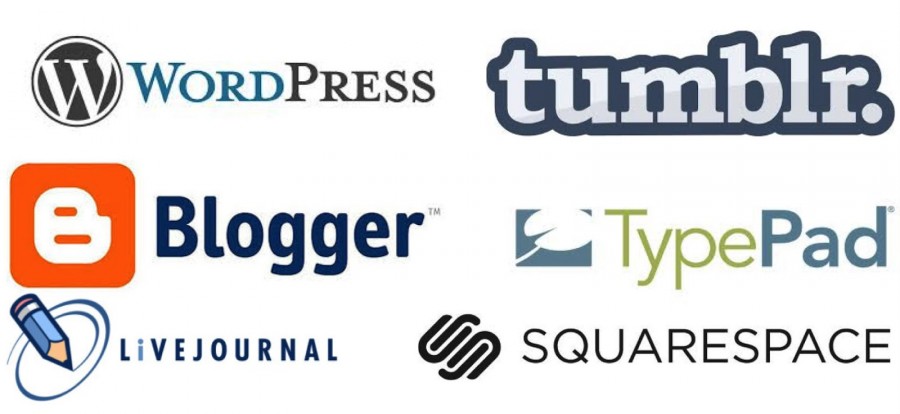Best Blogging Platform to Make Money in 2023
Understanding Different Blogging Platforms
![]()
So you’ve made the exciting decision to start a blog. Congratulations! You’re about to embark on a rewarding journey that can open up a world of opportunities. Whether you’re planning to share your personal experiences, educate others on a topic you’re passionate about, or use this platform to grow your online business, the choice of the blogging platform can make all the difference.
What is a Blogging Platform?
A blogging platform is an online software service that allows you to publish your content on the web in the form of a blog. It’s the canvas where you’ll paint your words, the stage where you’ll perform your digital soliloquies, and the marketplace where you’ll share your ideas.
There are two primary types of blogging platforms: self-hosted and hosted.
- Self-hosted platforms give you more control and flexibility, but require a bit of technical know-how. They’re like building your own house – you get to choose every brick, every color, and every piece of furniture – but you need to maintain it. An example is WordPress.org.
- Hosted platforms handle the technical side for you, but offer less customization. They’re like living in a hotel – everything is managed, but you can’t knock down walls or change the carpet. An example is WordPress.com.
Decoding the Best Blogging Platforms
There are numerous platforms out there, each with its own strengths and weaknesses. Let’s look at a few of the top blogging platforms.
- WordPress.org: This is the granddaddy of blogging platforms, powering over 38% of all websites on the internet. It’s incredibly customizable and powerful, making it a favorite for serious bloggers. But with great power comes a steeper learning curve.
- WordPress.com: This is a hosted version of WordPress. It’s easier to use, but at the cost of customization. It’s perfect for hobby bloggers, but might not satisfy those looking for a robust business tool.
- Blogger: This Google-owned platform is another great option for beginners. It’s easy to use, and being linked with Google can have benefits for SEO and integration with Google’s other tools.
- Medium: Medium focuses on writing and reading, with little emphasis on visual customization. It’s ideal for writers who want to focus on words and ideas, not design.
- Wix: Known for its drag-and-drop website builder, Wix is an easy-to-use platform perfect for complete beginners or those who want to put together a visually stunning blog without knowing a line of code.
My Personal Experience with Blogging Platforms
When I started my blogging journey, I began with a free WordPress.com account. I loved the simplicity and ease of use, but soon found it limiting as I wanted to add custom elements to my site and dive into more advanced SEO strategies. So, I made the leap to WordPress.org.
This transition was a steep learning curve, but the flexibility and control it offered were well worth it. I could choose from thousands of themes, plugins, and tools that allowed me to craft my blog into the dynamic, engaging, and profitable site it is today.
But remember, what worked for me might not work for you. It’s crucial to understand your needs, technical comfort, and long-term goals before choosing your platform.
Key Factors to Consider When Choosing a Blogging Platform
1. Usability and Learning Curve
Whether you’re a tech-savvy internet whizz or a digital novice, the usability of your chosen platform is crucial. Some platforms like WordPress.org offer vast customization but can be intimidating for beginners. In contrast, platforms like Blogger and Wix prioritize ease-of-use and accessibility.
I began my blogging journey on WordPress.com, which was relatively easy to navigate as a beginner. However, as I grew more comfortable with the digital space, I found myself craving more flexibility and control, leading me to switch to WordPress.org.
2. Customizability and Design Options
Your blog isn’t just a place for words—it’s a visual representation of your brand. The right platform should allow you to make your blog look and feel exactly the way you want.
Platforms like WordPress.org and Wix shine in this aspect, offering countless themes and design options. However, simpler platforms like Medium limit the amount of design customization.
3. SEO and Marketing Capabilities
SEO is the backbone of getting your blog seen by a wider audience. Platforms vary significantly in how much they help with SEO. WordPress, particularly WordPress.org, stands tall in this regard, thanks to plugins like Yoast SEO that provide robust SEO features. On the other hand, while platforms like Medium and Blogger offer some SEO tools, they’re not as extensive as WordPress. Understanding and optimizing SEO visibility can make a substantial difference in your blog’s reach and impact on your target audience.
4. Monetization Options
If making money from your blog is one of your goals, you need to choose a platform that supports monetization.
For instance, WordPress.org allows various monetization methods such as ads, sponsored posts, affiliate marketing, and selling products or services. Conversely, platforms like Medium offer a partner program where you earn money based on how much Medium members engage with your work.
When I decided to monetize my blog, WordPress.org’s flexibility made it easy to implement various income streams, significantly boosting my earnings.
5. Pricing and Overhead Costs
Budget can be a decisive factor when choosing a blogging platform. Platforms like Blogger and WordPress.com offer free plans but are limited in features. On the flip side, WordPress.org, while technically free, requires you to pay for hosting, which can range from inexpensive to quite costly depending on your choice of hosting provider.
Review of the Most Popular Blogging Platforms

1. WordPress.org
WordPress.org, not to be confused with WordPress.com, is the world’s most popular blogging platform. It’s a self-hosted platform, meaning you’ll need to purchase web hosting and a domain name to use it.
Pros:
- Highly customizable with thousands of themes and plugins.
- Full control over every aspect of your site.
- Powerful SEO tools.
- Monetization-friendly.
Cons:
- Higher learning curve for beginners.
- Requires ongoing maintenance and updates.
- The cost of hosting and domain.
My Experience: When I made the leap to WordPress.org, I realized the potential for unparalleled customization and control. Yes, it required some time to learn the ropes, but the effort paid off.
2. WordPress.com
WordPress.com is a hosted blogging platform, meaning it takes care of the hosting for you. It’s a solid choice for hobby bloggers or personal blogs.
Pros:
- No setup required.
- Free for basic use.
- Maintenance and security are taken care of.
Cons:
- Limited customization options.
- Cannot install plugins on the free plan.
- Your site can display WordPress.com ads unless you upgrade to a paid plan.
My Experience: WordPress.com was my first blogging platform. As a beginner, the simplicity was great. However, I quickly outgrew its limitations as I became more familiar with blogging.
3. Blogger
Blogger is a free blogging platform owned by Google. It’s one of the oldest blogging platforms still actively running.
Pros:
- Completely free to use.
- Simple to set up – no technical skills required.
- Google integration.
Cons:
- Limited design options and fewer updates.
- Less control as Google owns your blog and can suspend it.
- Not ideal for those wanting to expand their blog into a full-featured website.
My Experience: I didn’t personally use Blogger for my main blog, but I did set up a test blog on it. Its simplicity and integration with Google services are its main selling points.
4. Medium
Medium is a unique platform that focuses on the writing instead of design and branding. It’s a place where anyone can publish their thoughts and ideas.
Pros:
- Simple, no setup writing platform.
- Built-in audience.
- Writers can earn money through the Medium Partner Program.
Cons:
- Limited control and customization options.
- Difficult to build a personal brand.
- You can’t run your own ads or affiliate links.
My Experience: I’ve used Medium to publish some of my thought pieces and found it great for pure writing. However, it doesn’t offer the same level of control or branding that other platforms provide.
Comparison of Best Blogging Platforms for Making Money
| Platform | Features | Monetization Opportunities | Ease of Use | Customization | Cost |
|---|---|---|---|---|---|
| WordPress.org | Self-hosted, full control over site. | Ad networks, affiliate marketing, products. | Moderate (requires setup/hosting). | Highly customizable. | Hosting costs. |
| WordPress.com | Hosted version, limited customization. | Ads (with Business plan), affiliate links. | Easy, but customization is limited. | Limited customization options. | Varies by plan. |
| Blogger | Simple and owned by Google. | AdSense, affiliate marketing. | Very easy, minimal customization. | Limited customization options. | Free. |
| Medium | Focuses on writing, built-in audience. | Partner Program, locked content (paywall). | Very easy, minimal customization. | Limited customization options. | Free. |
| Wix | Drag-and-drop website builder. | Ad networks, e-commerce, products. | Easy, intuitive interface. | Highly customizable. | Varies by plan. |
| Squarespace | All-in-one platform, elegant design. | E-commerce, memberships, ads. | Easy, intuitive interface. | Highly customizable. | Varies by plan. |
Other Blogging Platforms Worth Considering
1. Ghost
Ghost is a modern, open-source blogging platform that’s all about minimalistic design and speed. It’s a robust alternative to WordPress if you’re looking for something more streamlined.
Pros:
- Simple and clutter-free interface.
- Fast and efficient.
- SEO-friendly out of the box.
- Integrated email newsletters.
Cons:
- Limited extensibility compared to WordPress.
- The cost for hosted version can be high for some.
- Less community support due to smaller user base.
My Experience: I experimented with Ghost for a side project and was impressed by its speed and simplicity. It was refreshing to focus on content without getting bogged down in customization options.
2. Squarespace
Squarespace is a popular website builder known for its stunning, professionally designed templates. It’s an all-in-one platform where you can build a beautiful blog without touching a line of code.
Pros:
- Beautiful, modern templates.
- Easy to use – no tech skills needed.
- Built-in eCommerce capabilities.
- Excellent customer support.
Cons:
- Less flexible than open-source platforms like WordPress.
- More expensive than some alternatives.
- Limited number of templates.
My Experience: I used Squarespace to build a portfolio site, and its design-centric approach left me with a visually stunning website. However, the cost and lack of flexibility might not suit everyone.
3. Weebly
Weebly is another easy-to-use, drag-and-drop website builder that allows you to build a blog, eCommerce store, or full website. It’s ideal for beginners or those who want to get a blog up quickly.
Pros:
- User-friendly with a drag-and-drop builder.
- A decent selection of templates.
- Comes with built-in eCommerce features.
Cons:
- Less customizable compared to WordPress.
- Exporting your site can be difficult.
- Limited blogging tools compared to other platforms.
My Experience: I used Weebly for a small business site. Its ease of use stood out, but its blogging features felt a bit lacking compared to other platforms.
4. Jekyll
Jekyll is a static site generator that’s perfect for developers and tech-savvy bloggers. It takes your text files, which you can write in Markdown, and turns them into a ready-to-publish static website.
Pros:
- Fast and secure.
- Ideal for developers and technically inclined bloggers.
- No database required.
- Free hosting on GitHub Pages.
Cons:
- Not user-friendly for non-technical users.
- Requires knowledge of Ruby.
- No user interface – everything is done via command line.
My Experience: As a blogger with a bit of a technical background, I enjoyed the control and performance that Jekyll offered. However, it’s definitely not for everyone.
Choosing the Best Blogging Platform to Make Money

1. Your Technical Skill Level
This is the first and perhaps most important consideration. If you’re technologically inclined, you might prefer platforms with more control and customization, like WordPress.org. However, if you’re less tech-savvy or just starting out, user-friendly platforms like Wix or Squarespace might be more your speed.
My Experience: I started with WordPress.com, a beginner-friendly platform. As my confidence and skills grew, I moved to WordPress.org to gain more control and flexibility.
2. Budget
Your budget can significantly influence your choice of platform. Platforms like Blogger or WordPress.com offer free plans but come with limitations. If you’re ready to invest in your blog, platforms like WordPress.org or Squarespace offer more features but come at a cost.
My Experience: I started with a free WordPress.com plan. As my blog grew and I wanted more from my platform, I saw the value in investing in a paid plan and haven’t looked back since.
3. Goals for Your Blog
What do you want to achieve with your blog? If you’re planning to turn your blog into a full-fledged business, a robust platform like WordPress.org would be a wise choice. If blogging is a hobby or you’re using it as a personal diary, simpler platforms like Medium or Blogger might suffice.
My Experience: My blogging journey started as a hobby, but as I recognized the potential for income, I transitioned to a platform that could support monetization: WordPress.org.
4. Features You Need
Different platforms come with different features. Do you want an integrated online store? Squarespace shines there. Do you want endless customization options? WordPress.org is your friend. Make a list of features you need from a blogging platform and choose the one that ticks most of the boxes.
My Experience: My needs evolved over time. As I grew as a blogger, so did my requirement for advanced features, which led me to switch platforms to suit my needs.
Maximizing Blog Monetization

1. Affiliate Marketing
Affiliate marketing involves promoting a product or service on your blog and earning a commission when someone buys through your referral link. Platforms like Amazon Associates provide a wide range of products to promote.
Pros:
- Wide range of products to promote.
- Passive income potential.
- Works well with most blog niches.
Cons:
- Requires a solid amount of traffic.
- Commissions can be low, depending on the program.
My Experience: I’ve found success with affiliate marketing by focusing on products that naturally fit within my blog’s content. Remember, authenticity and trust are key in affiliate marketing.
2. Display Advertisements
Display advertisements are a common method of monetization, especially for blogs with high traffic. Services like Google AdSense or Media.net place ads on your blog, and you earn money when visitors view or click on these ads.
Pros:
- Easy to set up.
- Passive income source.
Cons:
- Can detract from the user experience.
- Requires a lot of traffic to make substantial income.
My Experience: Display ads were one of my first monetization methods. The earnings were not significant at the start, but as my traffic grew, so did my ad revenue.
3. Sponsored Posts
Sponsored posts involve partnering with a company to create a post about their product or service. The company pays you for the exposure your blog provides.
Pros:
- Can be profitable, depending on your blog’s reach.
- Allows creative ways to integrate products into your content.
Cons:
- Can be time-consuming to negotiate with sponsors.
- Need to maintain transparency and authenticity with your audience.
My Experience: I’ve had positive experiences with sponsored posts, but I always ensure that the products I promote align with my blog’s niche and my audience’s interests.
4. Selling Products or Services
If you have a product or service to sell, your blog can be a powerful marketing tool. This could be an eBook, an online course, consulting services, or even physical goods.
Pros:
- High earning potential.
- Full control over your products and pricing.
Cons:
- Time-consuming to create and manage products.
- Requires a marketing strategy.
My Experience: I’ve created and sold eBooks related to my blog’s niche. Although it requires effort, it’s highly rewarding and profitable.
5. Email Marketing
Email marketing isn’t a direct monetization method, but it’s a powerful tool to promote your blog, products, or affiliate links to your audience.
Pros:
- Builds a loyal audience.
- High potential for return on investment.
Cons:
- Requires time and strategy to build a list.
- Need to provide consistent value to keep subscribers engaged.
My Experience: Building my email list was a game-changer. It allowed me to nurture my relationship with my audience and promote my products effectively.
FAQ: How to Make Money Blogging – Choosing the Right Blogging Platform
What are some popular free platforms for starting a blog?
There are several popular free platforms available for starting a blog, including WordPress, Blogger, and Wix.
Can I use a free version of a blogging platform to create my blog?
Yes, many blogging platforms offer free versions that allow you to create and host your blog without any initial cost.
Is WordPress a good option for creating a free blog?
Yes, WordPress offers both a free blogging platform called WordPress.com and a self-hosted option using WordPress.org.
What is a content management system, and how does it relate to blogging platforms?
A content management system (CMS) is a platform that allows you to create, manage, and organize digital content, making it an essential component of most blogging platforms.
Is it possible to have a free domain name for my blog?
Yes, some blogging platforms offer free domain names as part of their services. However, custom domain names may require a separate purchase.
How can I monetize my blog on a free platform?
You can monetize your blog on a free platform by using advertising networks, affiliate marketing, sponsored posts, and selling digital products or services.
What are the advantages of using a self-hosted blogging platform?
Self-hosted platforms provide more control over your blog’s design, functionality, and monetization options compared to free hosted options.
Are there specific free blogging platforms suitable for beginners?
Yes, platforms like Blogger and WordPress.com are often recommended for beginners due to their user-friendly interfaces and straightforward setup processes.
Can I make money online through my free blog?
Yes, you can make money online by utilizing various monetization strategies such as affiliate marketing, selling products, sponsored content, and advertising.
How can I choose the best free blogging platform for my needs?
To choose the best platform, consider factors like your blogging goals, technical skills, desired features, and monetization options. Researching and testing different platforms can help you make an informed decision.
What is a self-hosted blog, and how does it differ from other blogging platforms?
A self-hosted blog is one that you host on your own server or hosting service. Unlike other blogging platforms, you have more control over your site’s design and functionality.
Can I start a blog for free on platforms like WordPress.com?
Yes, you can create a free blog on platforms like WordPress.com, which offers a basic plan with limited features.
A media platform typically refers to a platform where you can create and share various types of media content, including images, videos, and articles. A social media platform focuses on connecting people and facilitating interactions through sharing content and engaging with others.
How can I monetize my blog if I want to make money from it?
There are several ways to monetize your blog, such as displaying ads, using affiliate marketing, selling products or services, offering premium content, and sponsored posts.
Are there blogging platforms that provide a free option?
Yes, many blogging platforms offer free plans with basic features. Some platforms also offer paid plans with more advanced features.
What are some key factors to consider when looking for the best blogging platform?
When choosing a blogging platform, consider factors like your goals, technical skills, customization options, scalability, monetization methods, and available support.
Is it possible to find free blog hosting services?
Yes, there are platforms that offer free blog hosting services, allowing you to create and host a blog without the need for separate hosting.
Which blogging platform is recommended for beginners?
WordPress.com and Blogger are often recommended for beginners due to their user-friendly interfaces and simplified setup processes.
Can I make a living from my blog?
Yes, many bloggers have turned their blogs into full-time careers by using effective monetization strategies, consistently providing valuable content, and building a loyal audience.
Are there any platforms specifically designed for bloggers who want to make money?
Yes, some platforms offer tools and resources to help bloggers make money, such as WordPress.org (self-hosted), which provides more customization and monetization options.
© PhoenixProject, with full or partial copying of the material, a link to the source is required.

Comments: 0